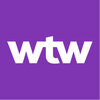Filter interviews by
PwC SAP MM Consultant Interview Questions, Process, and Tips
PwC SAP MM Consultant Interview Experiences
3 interviews found
(3 Questions)
- Q1. What is difference between SAP ECC and SAP S4Hana material master
- Ans.
SAP ECC and SAP S4Hana material master differ in data structure, user interface, and functionality.
SAP ECC material master has a traditional data structure with limited fields, while SAP S4Hana material master has a simplified data model with additional attributes.
SAP ECC material master requires more manual data entry and maintenance, whereas SAP S4Hana material master offers automation and real-time updates.
SAP ECC m...
- Q2. Tell me about your project
- Q3. What are workflows in SAP
- Ans.
Workflows in SAP are automated sequences of tasks that are executed based on predefined rules and conditions.
Workflows help streamline business processes by automating tasks and ensuring they are completed in a specific order.
They can be used for approvals, notifications, and data processing.
Workflows can be customized to fit the specific needs of an organization.
Examples include purchase order approvals, invoice proce
Skills evaluated in this interview
(4 Questions)
- Q1. What is consignment process
- Ans.
Consignment process involves transferring goods to a customer but retaining ownership until they are used or sold.
Goods are transferred to customer's location but remain in the ownership of the seller
Customer only pays for the goods once they are used or sold
Seller can track the goods in the customer's location
Risk of damage or loss is usually borne by the seller
- Q2. Difference in SAP ECC / HANA
- Ans.
SAP ECC is the traditional ERP system while SAP HANA is an in-memory database platform.
SAP ECC is a traditional ERP system that relies on disk-based databases for data storage.
SAP HANA is an in-memory database platform that stores data in RAM for faster processing.
SAP HANA allows real-time data processing and analytics, while SAP ECC may have delays in data retrieval.
SAP HANA is optimized for handling large volumes of ...
- Q3. Vendor master Details
- Q4. Scheduling agreement types
Skills evaluated in this interview
(1 Question)
- Q1. What is pricing procedure
- Ans.
Pricing procedure is a set of steps and conditions used to determine the price of materials or services in SAP MM module.
Pricing procedure is defined in customizing and consists of various condition types.
It determines the sequence in which the system accesses condition records and calculates prices.
Pricing procedure can be assigned to a purchasing document type to determine the price during procurement.
Example: A pric...
What people are saying about PwC






Interview questions from similar companies

Interview Questionnaire
1 Question
- Q1. Be prepared with coding for every concept you have learnt. Be ready to answer regarding exceptions and errors we face generally as a developer.

I applied via Referral
Interview Questionnaire
2 Questions
- Q1. Tell me something about yourself
- Ans.
I am a dedicated and experienced consultant with a passion for problem-solving and helping clients achieve their goals.
Over 5 years of experience in consulting industry
Strong analytical and communication skills
Proven track record of successfully implementing strategies for clients
Passionate about finding innovative solutions to complex problems
- Q2. Why BCG?
- Ans.
BCG offers a unique blend of challenging work, global opportunities, and a strong focus on personal development.
Global opportunities for exposure to diverse industries and markets
Strong emphasis on personal development through mentorship and training programs
Challenging and impactful work with top clients in various sectors
Culture of collaboration and teamwork
Interview Preparation Tips
Experience: The interview began with a quintessential -“Why don't you tell me something about
yourself?”, The case in round one was about potato chip manufacturing company. Didn't . really end up cracking the case/
Tips: You really need to be calm and only then will the analytical skills and creativity really show. But do not worry - the interviewer shall go out of his/her way to make you feel so.
Just be you and try to establish connecting with the interviewer. A smiling face comes in handy too.
Also, there is a lot of buildup on campus to the start of day zero- just remain calm during that time. It‟s easy to feel over pressurized, especially with all the short-lists coming in, but just relax. It‟s going to be fine.
Round: Case Study Interview
Experience: Case:The client is a large cement company with the highest market share. The second close player is cutting prices. To match the prices the client has also reduced its prices and is facing declining profits. The client has given us 3 weeks to solve the problem.
Structure:
I asked him about the dynamics of the industry. He explained that there is not much difference between the products as well as the cost structures of the company. This meant that even the competitor is losing money by the price war.
I suggested 2 alternatives to solve this: first involved analyzing the cost structure and trying to reduce costs. But the interviewer told me that the client has used all the cost efficiencies possible (this indicates that the interviewer does not want me to go deeper).
Second option that I suggested involved was the Game Theory approach. This involves indicating to the competitor that we will not reduce our prices even if he does so. This I suggested could be done by issuing some way of communication to the competitor. But he said that the competitor is not willing to talk. I could not think of what could be done so he suggested that the client should increase the prices. This will show to the competitor that the client is serious.
Then the interviewer said that after one week, the sales of the client had declined drastically and the competitor had not reduced its prices. This created a problem of inventory.
To solve this data was collected geographically and analyzed. It was found that some dealers had reduced the stocks of the clients cement. The clients did this as they expected the price increase to be temporary and thus wanted to postpone the purchase. I suggested increasing the prices again. This will signal to the dealers that the price increase is not temporary.
Finally he asked me to give some suggestions about the same. I suggested that the dealers should be given discounts based on the average volumes they generate every week and month. This will help in inventory planning. Secondly whenever the price is increased they should be increased all at once and any decrease should be spread over a larger period. This will not allow competitors and dealers to pre-empt the client.
Tips: Even though the ideas might sound outlandish, get them across, they will give you the benefit of thinking out of the box. Try to involve the interviewer in the case as much as possible, if he is interested he will point you out more and more in the right direction.
Round: Case Study Interview
Experience: Started directly with the case. At the end of the case asked me about LBO (Leveraged buyout) and asked me to give an example in the Indian markets .
Case:I was travelling in a taxi when the driver asked me about switching his car and joining the radio cab service such as Meru. What is your advice?
Structure:
I said that we will compare the profits of the two methods and make our decisions based on that. I asked about the revenue and costs of the two and calculated the profit.
I proved that joining the radio cab was better. But the interviewer told me that was the wrong answer. He asked me to go back.
I took the current taxi and approached the different line items one by one. I suggested that if the driver installed an AC he will be able to charge more. But the interviewer asked me to suggest something else.
If the engine of the cab (which was currently diesel) could be replaced by CNG (the radio cab used CNG) the fuel cost reduced drastically making the current cab more profitable. I showed him the calculations.
Tips: Try to be receptive to the hints given by the interviewer in the process. They are extremely important to get to the solution quickly.
General Tips: Do not lose your calm even if you answer wrong.
Skills:
College Name: IIM Lucknow

I applied via Referral
Interview Questionnaire
1 Question
- Q1. You own a stand-alone multiplex. Suggest ways you can increase its revenue
- Ans.
To increase revenue for a stand-alone multiplex, various strategies can be implemented.
Introduce loyalty programs to encourage repeat customers
Offer special promotions and discounts during weekdays or off-peak hours
Collaborate with local businesses for cross-promotions and joint marketing campaigns
Host special events or themed movie nights to attract a wider audience
Upgrade facilities and amenities to enhance the overa...
Interview Preparation Tips
Experience: Very basic scoping questions.1)Re-iterated the question. Confirmed the objective. 2)Asked him if this was attached to a mall. –He said forsimplicity purposes, let us assume it to be a standalone multiplex.
I told him that any multiplex would have mainly four sources of Revenues:1)Ticket Sales 2) Food and Beverages 3) Advertising 4) Parking Fees He askedme to ignore Parking fees and suggest ways to improve revenue for each of the other three categories.I started with Ticket Sales. Ticket Sales = Number of Tickets Sold/Show * Price * Number of shows. 1)Optimize show timings in such a way that more showscan be accommodated. This needs to be considered as a tradeoff to advertising and trailer timings.2)Pricing: Have a dynamic pricing strategy just like in airplanes. You charge each customer different based on the timing of purchase and supply demand equation.
Skill Tips: A very long PI session. Can’t say it was a PI, much like a conversation. The interviewer asked me about my work at Arvind Infrastructure. We discussed about my work for around 5-7 mins. This made me feel very comfortable and I was very much set for my case interview. He was extremely friendly and very good to talk to
Skills: Case Analysis
College Name: Indian School Of Business (ISB)

I applied via Referral
Interview Questionnaire
1 Question
- Q1. There is this hypermarket retailer and is suffering losses. Suggest means to make it profitable
Interview Preparation Tips
Experience: Follow the basic Profit –Loss Framework. He asked me to just consider Revenues.Revenues of Retail Company Factors: 1) Number of Footfalls 2) Conversion Rate 3) Products Bought 4) Quantity 5) Price of each product 6) Repeat customers.He asked me to discuss strategies to improve all of the above factors.I don’t remember what I spoke for all factors, but wherever I was unable to think, he was giving me clues. Being from retail background, I was able to relate my experiences with many of the solutions suggested.We talked about availability of products: Asked him to keep safety stock. Forecasting needs to be much better, appropriate information needs to be passed to distributors.Talked aboutplanogram: this is how you display your products, shelf space etc.I discussed with him about the loyalty programs and COD model.The interview was long, but again much like a conversation. Was very much relaxes during the interview and the interviewer was also smiling which made me feel very comfortable
Tips: Knowing your background really helps. One can suggest innovative solutions to the interviewer. BCG was the only consulting shortlist I had and by this time, I was very much determined to get to a closure.
Skill Tips: Tell me about yourself. –When I reached my retail experience part, he said “I am very interested in consumer behavior. Letus do a case on a retail chain.”We also discussed a lot about my retail experience:1)He asked me what were the challenges I faced –I told him inventory management was the biggest problem. Did you use some tools to solve inventory issues?I said yes. Spoke about it for about 2-3 mins.2)Why retail?
Skills: Case Analysis
College Name: Indian School Of Business (ISB)

I applied via Referral
Interview Questionnaire
1 Question
- Q1. There is this big hospital and the hospital is running losses. Identify what would be the critical issues
Interview Preparation Tips
Experience: Started with the basic Revenues –Costs = profit framework. He asked me to concentrate on revenues. I identified the sources of revenues 1) Consulting 2) Surgeries 3) Lab 4) Pharmacy. He nodded and asked me to move on. I asked him if there was a revenue dip in any of these services to which he replied these are all related and hence the dip is across all services. I asked him about the competition. I asked him whether the competition is offering similar services and how does it charge for its services as compared to the hospital in question. He said “Competition doesn’t specializes in heart surgeries like our hospital. However, it performs all services and their pricing structure is different.I asked him if they were pricing services lower than us to which he replied “no”. He wanted me to think on what could be different in terms of prices. I told him that the structure of pricing is different and hence the hospital may have one fixed fee whereas the competition may have a base fee plus additional charges. The price may come out to be the same but people may perceive it to be cheaper. He appreciated my answer and asked me if I would change the structure of the Hospital in question.I replied that I wouldn’t change the structure. The hospital has a very strong brand and has been following this pricing structure since ages. If it seemingly makes it lower, there is a possibility that patients may come to know about this and its brand may get tarnished. I wasn’t too happy with how I defended but I defended nonetheless.He asked me if I had any questions and I really didn’t have any questions for him. Too tired and nervous to think of anything. However, it is very important to prepare questions for interviewers.
Tips: 1)PI is extremely important. It helps you to develop connect with the interviewer. Also it adds to your confidence. Be genuine about your PI.2)Always keep smiling and be very confident. More than the solution, the interviewer should get good vibes during the interview. Even if you falter, admit that you do not know and you would like to understand from the interview how it needs to be done.3)Be humble.4)Do not ask your colleagues about how their interview experience went. It will just add to your worries and you may end up losing confidence.5)The interview should be more like a conversation.6)Sleep well the night before, do not wait for the schedule. Get up early and check the schedule. Do one case which you are most confident about the day of the interview.7)Again keep smiling.
Skills: Personality, Case Analysis
College Name: Indian School Of Business (ISB)

I applied via Referral
Interview Questionnaire
1 Question
- Q1. Chart 5 year growth strategy for BCG India
- Ans.
BCG India's 5-year growth strategy involves expanding market share, diversifying services, leveraging technology, and enhancing customer experience.
Expand market share by targeting new customer segments and geographies
Diversify services by offering new solutions and entering adjacent industries
Leverage technology to improve operational efficiency and develop innovative offerings
Enhance customer experience through perso
Interview Preparation Tips
Experience: Split revenue as price per engagement and number of engagementsSaid that we could increase price because of customized solutions but not enough for 20% and hence need to increase quantity of engagementsProposed customer retention through better service like engagement at lower corporate levels etc and more customer acquistion through industry expansion (verticals) ; Was asked to suggest a recruitment strategy for industry expansion and said that need laterals for PL position with industry knowledge and we could hire consultants and associates from b-schoolswith generic experience
Tips: What was good: Speed to cover issues, involving the interviewer in case, PIWhat could be better: More energy could be better because you need to energize the interviewer as well as it is a long day for them too
Skill Tips: RevenueTarget Get it to grow by about 20% y-o-yIs it limited to Indian customersYesWhat is the competitive scenarioAssume what you know about consulting currently
Skills: Case Analysis
College Name: Indian School Of Business (ISB)

I applied via Referral
Interview Questionnaire
1 Question
- Q1. The Government of India has invited bids for purchasing 1 GW solar power inMultiples of 5MW. Our client is considering bidding for this project.Advice on how he should proceed?
- Ans.
The client should carefully assess the project requirements, evaluate their capabilities, and develop a comprehensive bidding strategy.
Analyze the project requirements and understand the scope, timeline, and technical specifications.
Evaluate the client's capabilities, including financial resources, technical expertise, and previous experience in solar power projects.
Assess the competition and market conditions to deter...
Interview Preparation Tips
Experience: Q. What does our client do? Company was a manufacturing firm looking to build the plant and sell electricityQ. Does the client have a solar plant? No, the client has no current experience in Solar PowerQ. How much time will it take to build the plant?3-4 yearsQ. What is the life of my plant?30 years, govt will buy electricity for 30 yearsQ. How does government decide whom to allot?Project has to look technical feasible and financial terms Q. What kind of bidding takes place?First price Auction, lowest price wins
I started by indicating that the bid price would be dependent on the benefits and costs of the project as well as the competitive bid.The interviewer asked me to move ahead and discuss the benefits and costs. I first picked up the costing side of it and divided into fixed and variable. I was told that the capex was 17 crorers per MW. As soon as I had some numbers thrown on me I got a bit tensed, and thought that I would need to do some hard calculations. However, these numbers were thrown just to test if I could move ahead or be caught with numbers. As per the variable costs, I broke and listed all the expense such as direct material, direct labor, overheads, SG&A and depreciation etc. I then said that these costs would depend on the capacity of the plant. He asked me to elaborate on this topic and I said there would be effects of economies of scale and also the learning effect. He immediately asked me how learning curve would affect the costs. I told him thatthe learning curve would reduce the variable cost over time. I could see that he was happy with the answer and told me to proceed to the benefit side. On the benefits side, I said the amount I earn would be my cost X plus some margin y% over the cost. I also mentioned that competitive bids will impact how much I could expect on the bid price and mentioned that In such cases we usually look at old auctions or try to estimate the auction bid of other companies.
Tips: he case wasn’t hard but because the interviewer was working on his laptop during the interview and often not looking at me, I felt he wasn’t impressed. It was only after 15 mins into the interview, that I could get the interviewers complete attention. This usually happens in a stress interview, and one should not get stressed. Just keep calm and follow the most exhaustive approach. Also, in this case I was occasionally bombarded by numbers and got distracted as to how I should deal with them. One should remember that sometimes numbers are just to confuse and distract the interviewee
Skill Tips: Yash asked me why I did Bachelors of Finance and not Engineering. He also asked me about my choice of taking up commerce. I realized that was only to build stress and see how I perform later in the interview later. He also asked my GMAT score, Having a score of below of 700 I felt a little uncomfortable as I thought the interviewer would already make an impression about my performance. I guess it didn’t matter afterwards as I went to the final round.
Skills: Case Analysis
College Name: Indian School Of Business (ISB)
PwC Interview FAQs
Tell us how to improve this page.
PwC Interviews By Designations
- PwC Associate Interview Questions
- PwC Senior Associate Interview Questions
- PwC Consultant Interview Questions
- PwC Associate2 Interview Questions
- PwC Associate Consultant Interview Questions
- PwC Manager Interview Questions
- PwC Senior Consultant Interview Questions
- PwC Technology Consultant Interview Questions
- Show more
Interview Questions for Popular Designations
- SAP Abap Consultant Interview Questions
- SAP Fico Consultant Interview Questions
- SAP MM Functional Consultant Interview Questions
- SAP Consultant Interview Questions
- SAP Basis Consultant Interview Questions
- SAP SD Consultant Interview Questions
- Associate SAP MM Consultant Interview Questions
- Functional Consultant Interview Questions
- Show more
PwC SAP MM Consultant Interview Process
based on 3 interviews
Interview experience
Interview Questions from Similar Companies
Fast track your campus placements
PwC SAP MM Consultant Reviews and Ratings
based on 8 reviews
Rating in categories
|
Senior Associate
16k
salaries
| ₹8 L/yr - ₹30.5 L/yr |
|
Associate
13.6k
salaries
| ₹4.7 L/yr - ₹17 L/yr |
|
Manager
6.9k
salaries
| ₹14 L/yr - ₹45 L/yr |
|
Senior Consultant
4.5k
salaries
| ₹9 L/yr - ₹33 L/yr |
|
Associate2
4.4k
salaries
| ₹4.7 L/yr - ₹17.6 L/yr |

Deloitte

Ernst & Young

Accenture

TCS
- Home >
- Interviews >
- PwC Interview Questions >
- PwC SAP MM Consultant Interview Questions





















